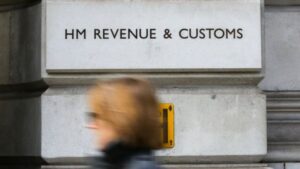
The taxman failed to collect more than £30 billion last year, the equivalent of £1 in every £20 owed.
Figures released by HMRC showed £32 billion in tax went unpaid in the 2020-21 financial year — 5.1 per cent of the total the taxman is owed. The figure, known by HMRC as the “tax gap”, included money owed from taxpayers who had failed to take reasonable care with their affairs, criminal attacks, non-payment and tax evasion.
Small businesses accounted for the largest proportion of underpaid tax, with £15.6 billion owed, up £500 million from the year before. Non-compliance was so serious that £1 in every £5 owed in corporation tax went unpaid.
Criminals accounted for £5.2 billion of the gap, while medium-sized businesses made up £3.9 billion and large businesses accounted for £3.6 billion.
“Problems in paying the right amount of tax are shown across all industries and revenue streams,” Dawn Register, head of tax dispute resolution at BDO, the accountancy firm, said.
“The Treasury coffers cannot afford the continuation of this level of tax gap: the missing £32 billion would be a welcome boost to the economy.”
George Turner, executive director of Tax Watch, an investigative think tank, suggested that the £32 billion figure should be higher as HMRC wound down much of its compliance work during the pandemic. “It is important that HMRC are open and transparent about the difficulties they face, so that the public can have confidence that they are being overcome,” he said.
Separate figures released yesterday show that Rishi Sunak’s decision to increase national insurance rates for workers in the spring swelled Treasury coffers by £2.4 billion in May. The exchequer raised £14 billion from the tax in May overall — up from a take of £11.6 billion in the same month in 2021.
Tax receipts overall in the past 12 months were up by 16 per cent compared with the year before, rising from £630 billion to £733 billion.
Accountants said the rising take was partly because of the decision to freeze numerous tax thresholds, which led to people’s pay being swept into higher tax bands in a process called “fiscal drag”.
Paul Haywood-Schiefer, senior manager at Blick Rothenberg, said: “Even with the alignment of the (national insurance and income tax) thresholds in July, a large proportion of people are going to still be worse off from where they were in the previous tax year, and that is before the current high rates of inflation are factored in.”
“The chancellor made the announcement of the increase in national insurance in September last year, with inflation sitting at just under 3 per cent. By the time we got to the spring statement it was close to double that and rising sharply.”
Read more:
Revenue says £30bn of tax owed went uncollected last year






